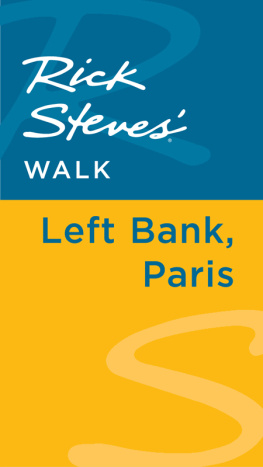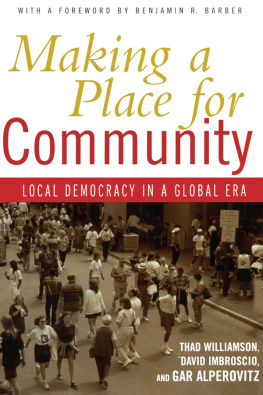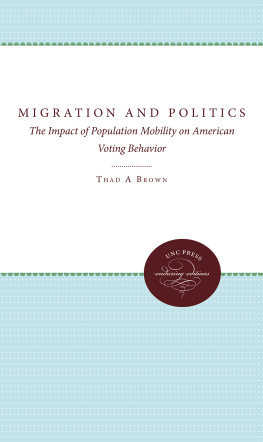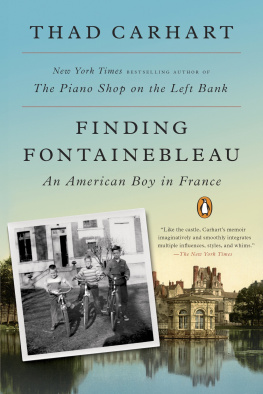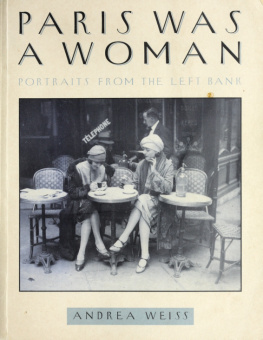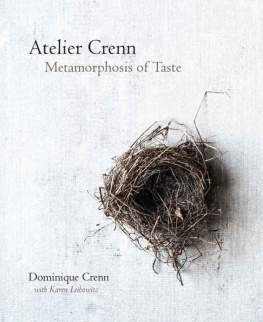Thad Carhart - The Piano Shop on the Left Bank: Discovering a Forgotten Passion in a Paris Atelier
Here you can read online Thad Carhart - The Piano Shop on the Left Bank: Discovering a Forgotten Passion in a Paris Atelier full text of the book (entire story) in english for free. Download pdf and epub, get meaning, cover and reviews about this ebook. year: 2002, publisher: Random House Trade Paperbacks, genre: Detective and thriller. Description of the work, (preface) as well as reviews are available. Best literature library LitArk.com created for fans of good reading and offers a wide selection of genres:
Romance novel
Science fiction
Adventure
Detective
Science
History
Home and family
Prose
Art
Politics
Computer
Non-fiction
Religion
Business
Children
Humor
Choose a favorite category and find really read worthwhile books. Enjoy immersion in the world of imagination, feel the emotions of the characters or learn something new for yourself, make an fascinating discovery.

- Book:The Piano Shop on the Left Bank: Discovering a Forgotten Passion in a Paris Atelier
- Author:
- Publisher:Random House Trade Paperbacks
- Genre:
- Year:2002
- Rating:4 / 5
- Favourites:Add to favourites
- Your mark:
- 80
- 1
- 2
- 3
- 4
- 5
The Piano Shop on the Left Bank: Discovering a Forgotten Passion in a Paris Atelier: summary, description and annotation
We offer to read an annotation, description, summary or preface (depends on what the author of the book "The Piano Shop on the Left Bank: Discovering a Forgotten Passion in a Paris Atelier" wrote himself). If you haven't found the necessary information about the book — write in the comments, we will try to find it.
The Piano Shop on the Left Bank: Discovering a Forgotten Passion in a Paris Atelier — read online for free the complete book (whole text) full work
Below is the text of the book, divided by pages. System saving the place of the last page read, allows you to conveniently read the book "The Piano Shop on the Left Bank: Discovering a Forgotten Passion in a Paris Atelier" online for free, without having to search again every time where you left off. Put a bookmark, and you can go to the page where you finished reading at any time.
Font size:
Interval:
Bookmark:
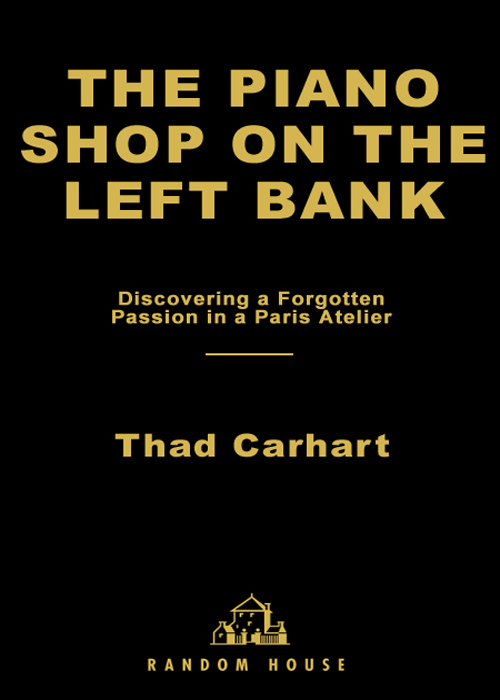
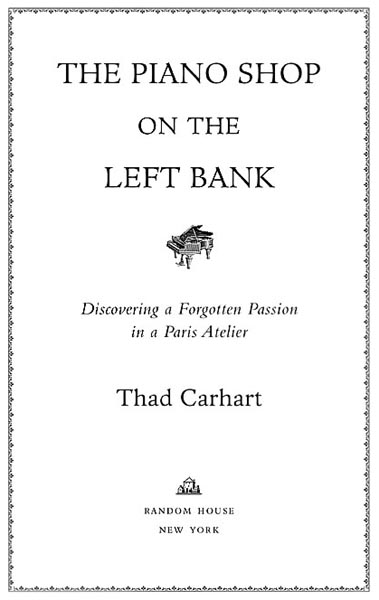
Contents
for Simo
Acknowledgments
M ANY PEOPLE HELPED me as I wrote this book, but two were indispensable. Alberto Manguel first encouraged me to tell this story and then generously shared his ideas as I worked. Marion Abbott tirelessly reviewed my drafts, and her good sense supplied me with imaginative suggestions and saved me many times from the dangers of muddy prose. To them both go my heartfelt thanks.
I am grateful to all those who read parts of the manuscript and offered suggestions and comments, including Simo Neri, Grazia Peduzzi, Joni Beemsterboer, Norman Packard, Edith Sorel, Ronnie Scharfman, Craig Stephenson, Claire Miquel, Lorna Lyons, Ronald Chase, Judith Hooper, and Alev Croutier.
A good number of pianists, piano teachers, historians, and technicians spent time talking over with me the challenges and rewards of their chosen instrument, among them Andreas Staier, Laurent de Wilde, Peter Feuchtwanger, Masaru Tsumita, Alfred Neumark, Yoheved Kaplinsky, Jean Haury, Firouzeh Nourazar, John Callahan, Marilynn Rowland, Laurence Libin, Jimmy McKissin, Christine Laloue, Jean-Claude Battault, David Dubal, the late Daniel Magne, and the late Gyrgy Sebk. While much of this material lies outside the narrative of this book, these interviews were invaluable to me in understanding the work of those whose lives revolve around the piano.
For their constant encouragement and support, Id like to thank Robert Wallace, Stphane Jardin, Lisiane Droal, C. J. Maupin, Katherine Russell Rich, Dick Teresi, and my parents, May and Tom Carhart. Im also grateful to the staff of the American Library and of the Centre de Documentation du Muse de la Musique in Paris for helping me track down source materials.
My two editors, Courtney Hodell at Random House in New York and Rebecca Carter at Chatto & Windus in London, pooled their extraordinary talents and managed to bring forth the book that I discovered I was writing only as I worked with them. I am indebted to them both for their painstaking help and pithy advice. Id also like to thank my agent, Bruce Westwood, and Kim McArthur of McArthur & Company for believing in this book from the outset.
I disappeared from the daily rhythm of family life so many times while writing this book that it must have seemed as if a ghost filled the role of husband and father in our house. My wife, Simo, and my children, Sara and Nicolas, were always there to remind me that I had not sunk below a far horizon, and I am forever grateful for their patience and support.
Finally, Id like to thank all of the people who appear in this book. They are all real, but I have changed some names and a few identifying details. Please dont try to find Luc or Mathilde or any of the others; they are not waiting to be discovered. They share that peculiarly French respect for what is called pudeur. Privacy is not an adequate translation, since the French has about it an important element of modesty and of basic decency. As a childhood friend once said to me, solemnly and without rancor, when I tried to impinge on his spaceman fantasy, Go find your own astronauts! In the same spirit, let me say to the reader, Go find your own Luc! Knock on doors, ask questions, be patient, and Paris may yield forth some other of its inestimable pleasures.
CHAPTER
Luc
A LONG A NARROW street in the Paris neighborhood where I live sits a little store front with a simple sign stenciled on the window: Desforges Pianos: outillage, fournitures. On a small, red felt-covered shelf in the window are displayed the tools and instruments of piano repair: tightening wrenches, tuning pins, piano wire, several swatches of felt, and various small pieces of hardware from the innards of a piano. Behind the shelf the interior of the shop is hidden by a curtain of heavy white gauze. The entire faade has a sleepy, nineteenth-century charm about it, the window frame and the narrow door painted a dark green.
Not so many years ago, when our children were in kindergarten, this shop lay along their route to school, and I passed it on foot several times on the days when it was my turn to take them to school and to pick them up. On the way to their classes in the morning there was never time to stop. The way back was another matter. After exchanging a few words with other parents, I would often take an extra ten minutes to retrace my steps, savoring the sense of promise and early morning calm that at this hour envelops Paris.
The quiet street was still out of the way and narrow enough to be paved with the cobblestones that on larger avenues in the city have been covered with asphalt. In the early morning a fresh stream of water invariably ran high in the gutters, the daily tide set forth by the street sweepers who, rain or shine, open special valves set into the curb and then channel the flow of jetsam with rolled-up scraps of carpet as they swish it along with green plastic brooms. The smell from la boulangerie du coin, the local bakery, always greeted me as I turned the corner, the essence of freshly baked bread never failing to fill me with desire and expectation. I would buy a baguette for lunch and, if I could spare ten minutes before getting to work, treat myself to a second cup of coffee at the caf across the street from the piano shop.
In these moments, stopping in front of the strange little storefront, I would consider the assortment of objects haphazardly displayed there. Something seemed out of place about this specialty store in our quiet quartier, far from the conservatories or concert halls and their related music stores that sprinkle a select few neighborhoods. Was it possible that an entire business was maintained selling piano parts and repair tools? Often a small truck was pulled up at the curb with pianos being loaded or unloaded and trundled into the shop on a handcart. Did pianos need to be brought to the shop to be repaired? Elsewhere I had always known repairs to be done on site; the bother and expense of moving pianos was prohibitive, to say nothing of the problem of storing them.
Once I saw it as a riddle, it filled the few minutes left to me on those quiet mornings when I would walk past the shop, alone and wondering. After all, this was but one more highly specialized store in a city known for its specialties and refinements. Surely there were enough pianos in Paris to sustain a trade in their parts. But still my doubt edged into curiosity; I saw myself opening the door to the shop and finding something new and unexpected each time, like a band of smugglers or an eccentric music school. And then I decided to find out for myself.
I had avoided going into the shop for many weeks for the simple reason that I did not have a piano. What pretext could I have in a piano furnishers when I didnt even own the instrument they repaired? Should I tell them of my lifelong love of pianos, of how I hoped to play again after many vagabond years when owning a piano was as impractical as keeping a large dog or a collection of orchids? Thats where I saw my opening: more settled now, I had been toying with the idea of buying a piano. What better source for suggestions as to where I might find a good used instrument than this dusty little neighborhood parts store? It was at least a plausible reason for knocking.
And so I found myself in front of Desforges one sunny morning in late April, after dropping off the children down the street. I knocked and waited; finally I tried the old wooden handle and found that the latch was not secured. As I pushed the door inward it shook a small bell secured to the top of the jamb; a delicate chime rang out unevenly, breaking the silence as I swung the door closed behind me. Before me lay a long, narrow room, a counter running its length on one side, and along the facing wall a row of shelves laden with bolts of crimson and bone-white felt. Between the counter and the shelves a cramped aisle led back through the windowless dark to a small glass door; through it a suffused light shone dimly into the front of the shop. As the bell stopped ringing and I blinked to adjust my eyes, the door at the back opened narrowly and a man appeared, taking care to move sideways around the partly opened door so that the view to the back room was blocked.
Next pageFont size:
Interval:
Bookmark:
Similar books «The Piano Shop on the Left Bank: Discovering a Forgotten Passion in a Paris Atelier»
Look at similar books to The Piano Shop on the Left Bank: Discovering a Forgotten Passion in a Paris Atelier. We have selected literature similar in name and meaning in the hope of providing readers with more options to find new, interesting, not yet read works.
Discussion, reviews of the book The Piano Shop on the Left Bank: Discovering a Forgotten Passion in a Paris Atelier and just readers' own opinions. Leave your comments, write what you think about the work, its meaning or the main characters. Specify what exactly you liked and what you didn't like, and why you think so.


